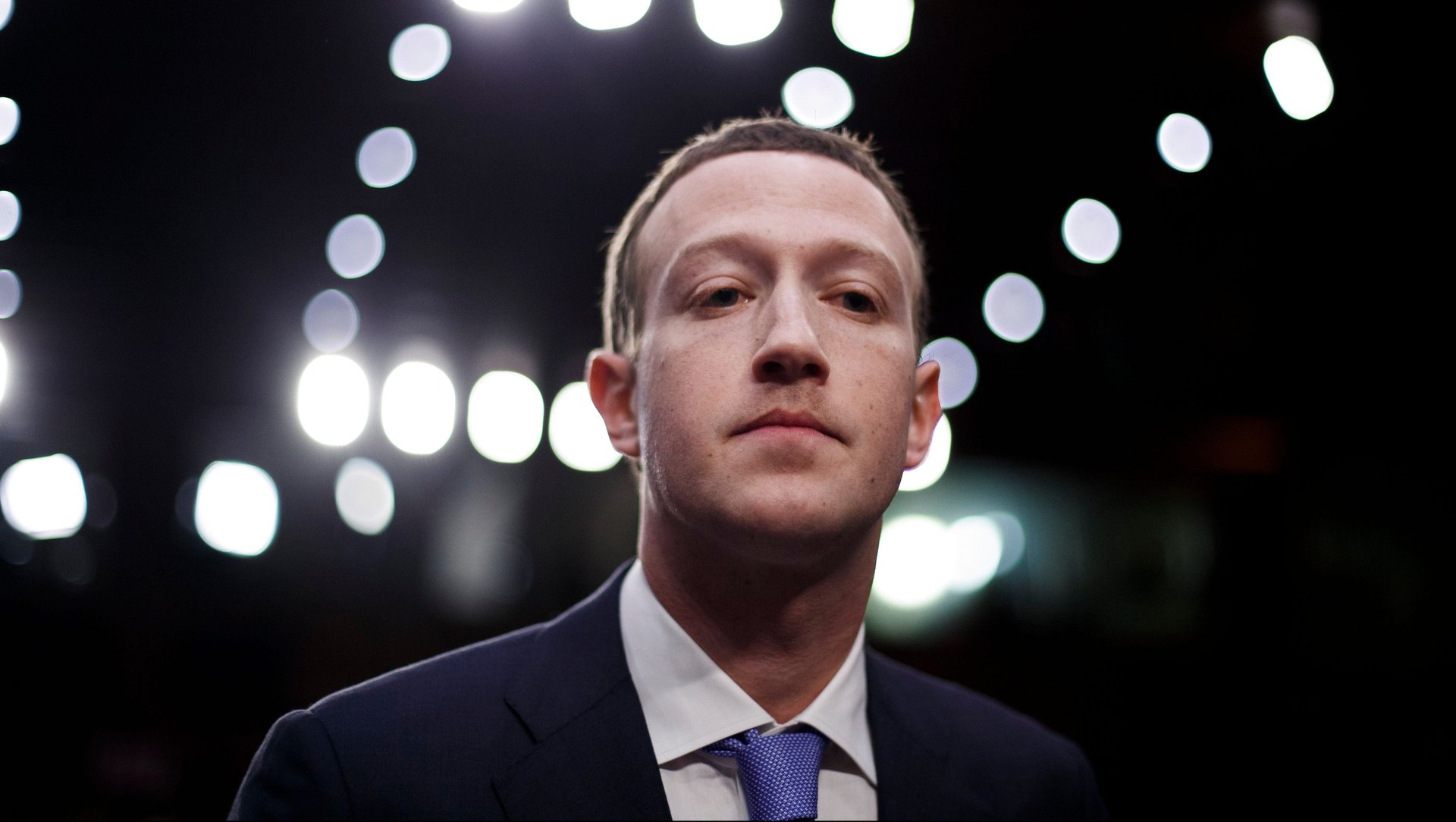Facebook is hiring someone to tell politicians it’s not a monopoly
Facebook CEO Mark Zuckerberg insists that the company’s business most definitely is not a monopoly. Whoever fills Facebook’s newest job opening will have to make the case to policymakers around the world.


Facebook CEO Mark Zuckerberg insists that the company’s business most definitely is not a monopoly. Whoever fills Facebook’s newest job opening will have to make the case to policymakers around the world.
Facebook posted the Washington DC-based job—”Public Policy Manager, Competition“—late last month. As described, the duties include explaining Facebook’s business model to lawmakers around the world and formulating a response to the politicians who are intensely scrutinizing the company’s competition. “The Public Policy Manager will aid in the development of Facebook’s positions in public presentations or closed-door policy briefings,” it says.
Facebook, Google, and Amazon control 80% of the US online advertising market with virtually no regulation, in addition to mediating much of the world’s communications and commerce.
Regulators have begun to scrutinize the powerful position of these platforms. The European Union has lead the way. Since 2017, it has hit Google with three fines totaling €8.2 billion ($9.2 billion) for anti-competitive practices. The EU’s anti-trust new investigation of Amazon is “quite advanced” (paywall), according to European Competition Commissioner Margrethe Vestager, with more fines and sanctions likely as Europe seeks to curb tech platforms’ leverage over online markets for attention and trade.
Facebook has somehow managed to enrage everyone on both sides of the aisle—and the Atlantic—with its behavior. Its dissembling response (paywall) to Russian inference in western elections, disinterested approach to stopping misinformation and hate speech, and non-stop scandals surveilling its users and mishandling their data has made it Silicon Valley’s most visible political target for liberals and Ted Cruz alike.
Washington DC is turning up the heat on the company despite not having pursued a significant anti-trust case in years. It’s deeply suspicious about the social media conglomerate managing social communications for more than 2 billion people over Facebook, Instagram, and WhatsApp. The House Judiciary committee’s antitrust subcommittee just hired (paywall) Lina Khan, a former Yale Law student whose 2017 article, “Amazon’s Antitrust Paradox,” went viral after laying out the case for treating Amazon as the modern-day equivalent of Standard Oil.
Facebook is facing a host of regulatory challenges. Several privacy bills are winding their way through Congress. The Federal Trade Commission may be preparing a multi-billion dollar fine and forcing changes to Facebook’s data-collection and advertising business model. The opacity of Facebook’s business model, and the steady stream of scandals, have given politicians plenty of leverage against the company. Some or all may ultimately figure into anti-trust proceedings if they move forward.
At Senate hearings last April, South Carolina Republican senator Lindsey Grahm articulated Washington’s view by asking Zuckerberg if users had an alternative to Facebook if they wished to stop using it. The Facebook CEO evaded the question by claiming Facebook was just one of many “apps” the average American uses to communicate with family and friends online, including email.
Graham finally cut the pretense. “You don’t think you have a monopoly?” he asked. “It certainly doesn’t feel like that to me,” Zuckerberg replied to laughs in the hearing room. Now there’s a job to convince Graham and others that Zuckerberg is right.